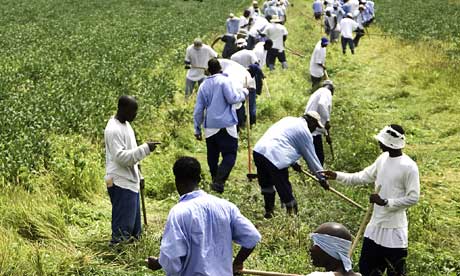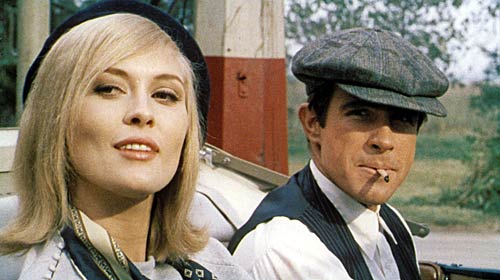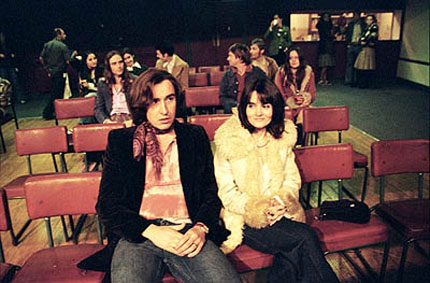It’s been an odd couple of weeks. I dropped this article last week because, aside from the three films I saw at the cinema, I had only seen another two films in those seven days. This past week I spent a lot of time at cinemas, so much so that several cinema releases will be covered here rather than in full reviews. All, hopefully, will return to normal next week.
Maximum Jail
DIR: Jonathan Stack

Jonathan Stack revisits Angola prison in Louisiana, ten years after making a film about six prisoners serving long, or even life, terms. Two are dead, one of AIDS, the other of a lethal injection. Two have been released; one paroled, one pardoned, and are thriving, using their freedom to preach and attempt to turn young people away from a path that might lead to Angola. Two remain incarcerated. Of these the most intriguing story is that of Vincent Simmonds, serving 100 years for a double rape, which he maintains that he did not commit, despite the fact that saying he had would place him, perhaps, on the road to eventual parole. The scene that shows his parole hearing, and the spectacularly short and dismissive consideration that his case is given, is the film’s most troubling, and most enduring.
Stack paints a rosy picture of Angola under warden Burl Cain; it seems almost more like a hermetically sealed religious retreat than a prison, and you have to wonder how full a picture this is. That said. Jonathan Stack weaves an intriguing and compelling tapestry here; you wish he’d spend a little more time on Simmons, the details of whose arrest are pretty shocking, as he’s easily the most compelling character in the film, but this is an intelligent and engaging film that does much to shatter stereotypical views of prison and prisoners.
The Wrong Man [‘56] (PG)
DIR: Alfred Hitchcock

The title of this Hitchcock could just as easily belong to any number of his other films, and while this one, stacked up against the rest of his work from the 40’s and 50’s, seems like a minor entry in the canon, it remains a cracking thriller. Henry Fonda radiates simple decency as the man misidentified as a bank robber, while Hitch’s then favourite Sylvia Miles is excellent as the wife driven mad by his predicament. Hitchcock is on typically fluent form behind the camera, adopting a slightly grittier, less designed style than usual, and using many of the real locations in which this true story took place. It’s not one of the Master’s masterpieces, but it’s still highly recommended.
Bonnie and Clyde (18)
DIR: Arthur Penn

“They’re young, they’re in love, and they kill people”. Bonnie and Clyde may have the single best tagline ever written, but both that line and the film it promotes fail to tell the full story. Arthur Penn’s movie is a great success on its own terms, even 42 years later the frankness and casualness of the film’s violence is shocking and the fast moving script and capable, perversely likable, performances make for a highly engaging and exciting movie, as mythmaking it’s fantastic.
However, when it comes to telling the story of these famous criminals, the whitewashing is a real shame. Obviously it would be impossible to include all their exploits, but in making Bonnie and Clyde into glamorous outlaw antiheroes the film misses the more dramatic and more interesting truth. All in all, the film does what it sets out to do brilliantly, but I can’t help thinking there’s a much more interesting film to be made by sticking closer to the truth.
Apan (18)
[The Ape]
DIR: Jesper Ganslandt

This minimalist thriller from Sweden seems, once again, to confirm that their film industry is in rude health. Jesper Ganslandt’s film opens with a man in his late 30’s (Olle Sarri) waking, covered in blood, in what seems to be an unfamiliar room, and then, following him over roughly the next 36 hours, proceeds to fill us in on why he woke up that way and his attempts to deal with the situation he finds himself in.
Sarri is brilliant (helped, apparently, by the fact that Ganslandt never let him see a script or speak to the crew, ensuring that he was as alienated and surprised by events as his character), and this doom laden film seems to lead both him and us ever further into a very recognisable hell. The Ape doesn’t deal in explicit violence, but it does boast several moments that hit with the force of a punch to the gut, largely because they feel so very, disturbingly, real. If you appreciated Henry: Portrait of a Serial Killer then The Ape, with all its faults (it certainly can feel a little languorous in its first forty minutes, and ends with a moment that will have you screaming ‘is that IT?’) is well worth the brief eighty minutes of your time that it asks for, and it certainly marks Jesper Ganslandt as a talent to watch.
I Love You, Phillip Morris (15)
DIR: Glenn Ficarra / John Requa

The first directorial effort from the writers of Bad Santa isn’t quite so in your face as you might expect, nor is it packed with bad taste humour (though it's subject matter will certainly offend some small-minded folk). In fact, at the heart of this very funny true story (an opening caption assures us “This really happened. It really did.”) is a surprisingly genuine, and actually strangely touching, love story between two men.
The titular Phillip is played by Ewan McGregor, and he meets Carrey’s Steven Russell, whose life has taken him from being a married cop to a flamboyantly gay con man, in prison. While there the two fall in love, and on his release Russell turns to ever more outlandish cons, first to free Phillip and then to keep them both in a lavish lifestyle, however, it all comes undone when Steven is, once again, caught and sent to prison.
Both Carrey and McGregor are better here than they’ve been in a very long time. Carrey is laugh out loud funny as the energetic and imaginative Russell, but also manages to give a convincing dramatic performance, and really makes us believe in his love for Morris. McGregor has a much less showy part, but he plays it beautifully, making Phillip fey and effeminate without just playing a stereotype. There’s also nice work in the supporting cast, especially from Leslie Mann, who has never been better than she is here, as Russell’s estranged, but still caring, wife.
It would be a crime to divulge the twists and turns of the plot, other than to say that if they weren’t true you’d never believe them. This is a smart, funny and also rather heartwarming film, and a rare American mainstream comedy that focuses on gay characters without ever resorting to ridiculing them.
L’affaire Farewell (15)
[Farewell]
DIR: Christian Carion

Christian Carion’s telling of the (at least largely) true story of a Russian spy, handled by the French and codenamed Farewell (played by director Emir Kusturica) plays like a 70’s espionage thriller. Deliberately paced, and played mostly through conversational scenes rather than action, it nevertheless grips from beginning to end.
As the high ranking spy, Kusturica is excellent, giving a slightly melancholy performance as a man hoping that by risking his life he’ll help make a better world for his son, while as his young, inexperienced handler Guillaume Canet (also, incidentally, a director) is decent and harried in appropriately equal measure. These two actors dominate the film, but there are valuable, if small, contributions from the rest of an international cast.
Alexandra Maria Lara has a thin role as Canet’s concerned wife, but she brings life to it, much the same is true of Kusturica’s mistress, played by the brilliant Dina Korzun and Willem Dafoe as Canet’s eventual CIA contact. The supporting player who sometimes threatens to steal the film though is Ingeborga Dapkunaite as Kusturica’s wife. She’s just wonderfully real in every one of the too few moments she’s on screen. The only disappointing performance comes from Fred Ward, as a hammy Ronald Reagan.
What’s especially nice, in this day and age, about L’affaire Farewell is that it proves that you don’t have to tear a page out of the Bourne playbook to make a riveting spy movie.
24 Hour Party People (18)
DIR: Michael Winterbottom

A cast of Britain’s best character actors, led by a brilliant Steve Coogan as Factory Records boss Tony Wilson, bring the Madchester music scene of the 80’s and early 90’s to vivid life in this legend printing film from the prolific Michael Winterbottom. It’s not an especially dep explorattio of either the music or the times, more a brilliantly fun scrapbook of half remembered, half invented incidents that are more interesting than the actual truth. The performances are fantastic (special notice to Andy Serkis, Paddy Considine and Shirley Henderson, as well as Coogan) and Frank Cottrell Boyce’s script is sharp, funny, and a little bitter. Oh, and the music’s great.
Christmas in July / The Great McGinty (U)
DIR: Preston Sturges
I’ve put the two of these together because, as well as their being by the same writer/director I really have just about the exact same things to say about both of them. There’s a lot of good stuff here; a strong premise (Man goes on a spending spree, thinking he’s won $25,000, only to discover later that the prize was given by mistake [Christmas in July]. Corrupt politician is undone by his first honest act [The Great McGinty]), good performances, sharp writing and sure handed direction. That said, both of these early efforts from Preston Sturges (who later made the brilliant The Lady Eve and Sullivan’s Travels) are both rather middle of the road efforts. They’ve got a good amount of chuckles, and neither is ever boring, but neither ever really soars either. Pretty average efforts from a director who made at least a couple of great films.
The Children (15)
DIR: Tom Shankland

Shankland’s entry in the cycle of paedophobic horror that has been coming out of Britain is neither the strongest, nor the weakest of its kind, and it’s certainly head and shoulders above his awful previous film W∆Z. There are some genuinely effective moments in this story about an extended family taking a new years holiday when their children all fall ill, and then begin to attack the adults. Though most of the violence is cleverly cut to play only very briefly on screen, Shankland does still manage to make a lot of it seem very painful (see Eva Birthistle’s leg break. Ouch.)
This is also an impressively transgressive film. Even the nastiest of horror films usually shrinks from violence being meted out to children, not this one, there are a couple of really nasty, and shockingly explicit, moments of violence once the children turn into infected killing machines.
On the downside, the performances aren’t great, with Rachel Shelley’s hammy wailing especially irritating, and there are some serious plot holes (why, for instance, can Birthistle’s character drive at the end of the film, with her shattered leg). There’s also a problem with the ending, which is perhaps supposed to be scary, but the blank look on Hannah Tointon’s face, which may be supposed to frighten us, is so like the blank look she wears during the rest of the film that it’s hard to tell what Shankland is going for with that shot.
The Children is efficient and stylish, and with a better cast Tom Shankland may yet prove to be an interesting filmmaker.
Scream (18)
DIR: Wes Craven

Fourteen years on (wow, I feel old), Wes Craven and Kevin Williamson’s genre reviving slasher looks, in all honesty, pretty clunky. The analysis of the genre had been done better before (in Wes Craven’s New Nightmare) and has been done better since (in Behind the Mask: The Rise of Leslie Vernon) and without the novelty factor that it had on release the performances look ropey (Neve Campbell and Skeet Ulrich wooden, Matthew Lillard irritating as he chomps every bit of scenery in sight.) The only thing that really stands up is the extraordinary, terrifying, opening sequence.

No comments:
Post a Comment